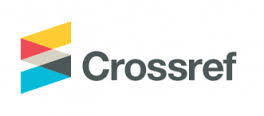Exploring the use of artificial intelligence applications by students of the practical education course at Al al-Bayt University to enhance their teaching practices
DOI:
https://doi.org/10.59759/educational.v4i2.907Keywords:
Artificial Intelligence, Pre-Service Teachers, Artificial Intelligence Applications, Educational Curricula, Practical Education ProgramsAbstract
As AI increasingly impacts diverse sectors of society, its integration into educational settings, particularly in preschool classrooms, raises important questions about its impact on teaching and learning processes. This research focused on how a practicum course at Al al-Bayt University prepared pre-service teachers to use AI applications in their future classrooms. The population of the study included 2072 female students and the sample of this study was the whole population (2072 female students). Throughout the practicum course, students engaged with a variety of AI tools relevant to teaching practices. The study assessed the impact of the practicum course on pre-service teachers’ views of AI’s ability to improve teaching methodologies. By evaluating students’ projects, presentations, and feedback on the practicum course, the research sought to determine the effectiveness of the practicum course in preparing future teachers to seamlessly integrate AI into their teaching strategies. The findings may inform the design of practicum programs that aim to equip future teachers with the essential skills and knowledge to adapt to the changing educational landscape shaped by AI.
Downloads
References
Belpaeme, T., Kennedy, J., Ramachandran, A., Scassellati, B., & Tanaka, F. (2018). Social robots for education: A review. Science Robotics, 3(21), 595-609.
Ferguson, R. (2012). The state of learning analytics in 2012: A review and future challenges. Knowledge Media Institute, Open University, 1-26.
Ghergulescu, I., Muntean, C. H., & Muntean, G. M. (2019). Investigating teachers' acceptance of an artificial intelligence-based system in education. IEEE Transactions on Learning Technologies, 13(1), 67-78.
Holmes, W., Bialik, M., & Fadel, C. (2019). Artificial Intelligence in Education: Promises and Implications for Teaching and Learning. Center for Curriculum Redesign.
Holstein, K., & McLaren, B. M. (2019). Designing for transparency in AI-infused education: A conceptual framework. Educational Technology Research and Development, 67(1), 1-22.
Holstein, K., McLaren, B. M., & Aleven, V. (2018). Student learning benefits of a mixed-reality teacher awareness tool in AI-enhanced classrooms. Artificial Intelligence in Education, 5(1), 93-102.
Ibáñez, M. B., & Delgado-Kloos, C. (2018). Augmented reality for STEM learning: A systematic review. Computers & Education, 123, 109-123.
Johnson, L., Becker, S. A., Estrada, V., & Freeman, A. (2020). NMC Horizon Report: 2020 Higher Education Edition. The New Media Consortium.
Lokken, J. (2017). Experiential learning and AI: Exploring new pathways to engage students. Journal of Educational Technology, 14(3), 27-35. https://doi.org/10.14434/jet.v14i3.12345
Luckin, R. (2017). Enhancing Learning and Teaching with Technology: What the Research Says. UCL Institute of Education Press.
Luckin, R., Holmes, W., Griffiths, M., & Forcier, L. B. (2016). Intelligence unleashed: An argument for AI in education. Pearson Education. https://www.pearson.com/content/dam/one-dot-com/one-dot-com/global/Files/news/news-annoucements/2016/Intelligence-Unleashed-Publication.pdf
Popenici, S. A. D., & Kerr, S. (2017). Exploring the impact of artificial intelligence on teaching and learning in higher education. Research and Practice in Technology Enhanced Learning, 12(1), 1-13. https://doi.org/10.1186/s41039-017-0062-8
Selwyn, N. (2016). Is technology good for education? Polity Press.
Selwyn, N. (2019). Should Robots Replace Teachers? AI and the Future of Education. Polity Press.
Wang, Y., & Tahir, R. (2020). The effects of using Duolingo in foreign language learning: A systematic review. Computer Assisted Language Learning, 33(8), 901-926.https://doi.org/10.1080/09588221.2019.1648298
Williamson, B., & Eynon, R. (2020). The Datafication of Education: A Critical Approach to Emerging Technologies and Data Practices in Schools. Learning, Media and Technology, 45(1), 3-8.
Zawacki-Richter, O., Marín, VI, Bond, M., & Gouverneur, F. (2019). Systematic review of research on artificial intelligence applications in higher education: Trends and outcomes. International Journal of Educational Technology in Higher Education, 16(1), 1-27.https://doi.org/10.1186/s41239-019-0171-0


